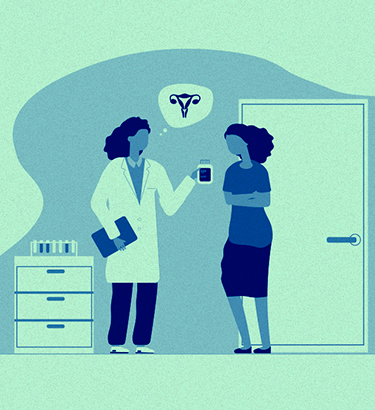"Connection and affection equal the safety to feel desire and wanting," said Devèze (pronouns they/them). "It's just one of those things where people don't really get turned on unless they feel comfortable.
"There are plenty of ways to experience pleasure and climactic experiences which don't have to involve penetration," they continued. "It doesn't even have to involve touch."
Sex isn't synonymous with the same actions for everyone. The act is often fluid, even in relationships. A number of factors, both mental and physical, could shape the kind of sex that is best for you.
"Sexuality is very tied into our self-expression, our self-worth," Devèze said. "Different pleasure doesn't mean less pleasurable, it just means different."
However, your partner won't know how you feel, what you enjoy or any concerns you face in your life without communication. Still, it can be hard to communicate, especially if you've had a negative sexual experience or feel anxious about sex.
According to Devèze, if you're having sex and it isn't going well for you, a good place to start is to simply check in with questions like:
- "How could you enjoy this more?"
- "Hey, could we pause for a minute?"
- "I need to tweak this situation to be more comfortable."
- "I'm a little uncomfortable receiving right now, can I offer you pleasure instead?"
- "I'm really anxious right now. Could I cuddle next to you while you self-pleasure?"
Having these conversations with an intimate partner creates more pleasure for both of you.
"You're going to associate sex with something pleasurable but also safe, and that can help overcome many barriers," Devèze explained.
Sometimes it's good to have a conversation before reaching the point of sex. Susie Gronski, a licensed doctor of physical therapy, an AASECT-certified sex educator and a medical advisor for Aeroflow Urology in North Carolina, shared her best tips on starting a conversation about sex and sexual health with your partner:
- Schedule time to have a conversation with your partner without distraction.
- Give your partner a heads-up about what you would like to talk about so the conversation doesn't throw them off-guard.
- Even if you're nervous or uncomfortable talking to your partner about sex, let them know how you feel. Be open and honest with your feelings.
- Communicate clearly but respectfully. Understand your partner has their own fears, vulnerabilities, thoughts and experiences around sex and their sexual health.
- Explain, don't blame. Help your partner understand your concerns; remember, they cannot read your mind. Make statements that start with "I" instead of "You" as they sound less critical and are less likely to elicit a defensive response from your partner.
- Give appreciation when it's due. Acknowledge your partner's willingness and courage to engage in sexual dialogue.
- Share reciprocity. Give your partner space and attention to share their perspective. Be open and flexible when listening to their response and let them know that you heard and understood them.
- Let your partner know how they can best support you during the conversation and afterward. Allow them to share what support they'd like from you as well.














